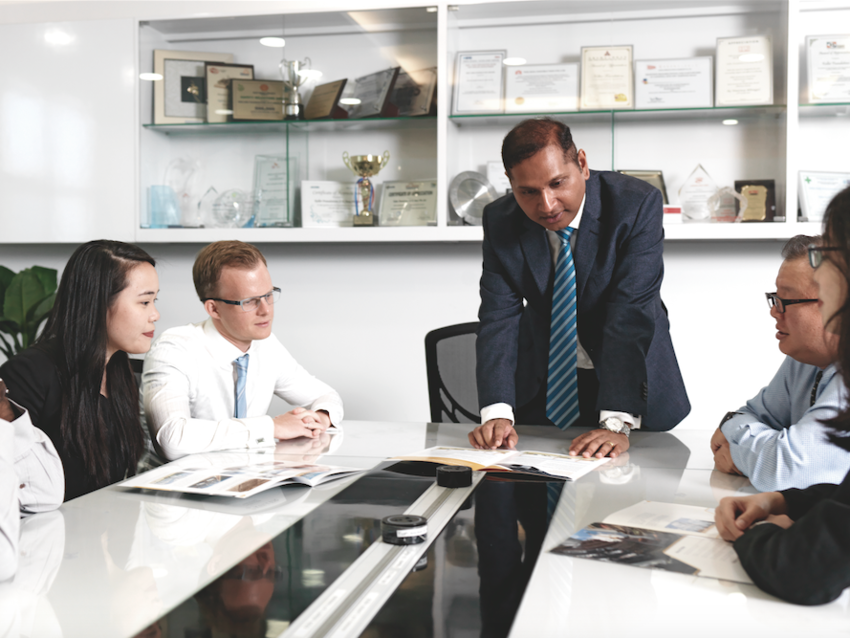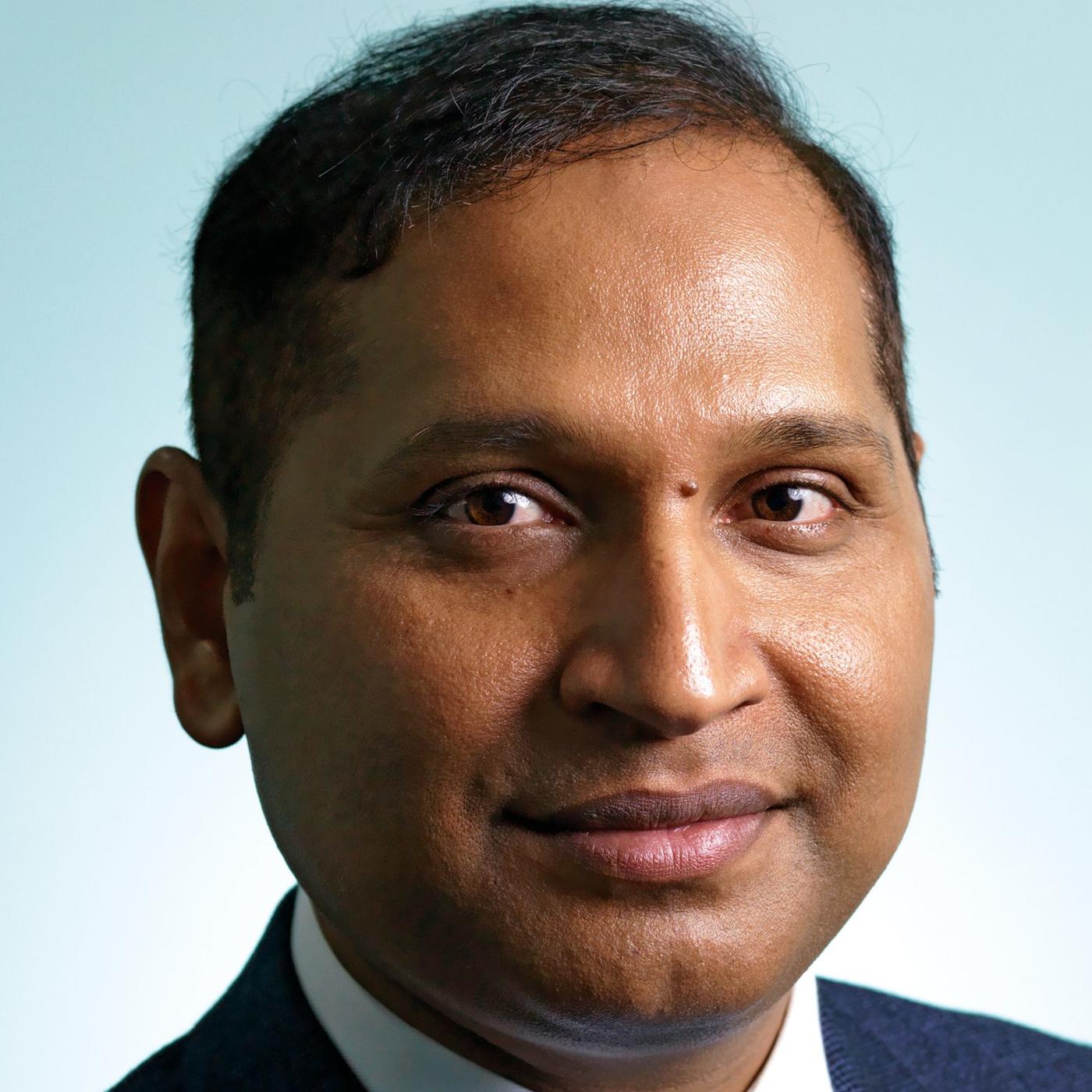Tasked with turning around Keller ASEAN, Managing Director Deepak Raj has dug deep to restore the company to its former glory.

For Deepak Raj, Managing Director of specialist contractor Keller Group Plc’s ASEAN Business Unit, it’s what’s under the ground that fascinates him, largely dealing with uncertainties compared to what’s on top.
And while the science behind the foundations may not seem as exciting as the glitz and glamour of the structures that sit above, without them a development project is literally nothing. The wider Keller Group has laid foundations for many of the world’s largest and iconic structures.
Like a quiet achiever, Keller ASEAN has reclaimed almost 200 million cubic metres of land across Asia, creating a blank and safe canvas for recognised developments throughout the region.
Singapore’s Deep Tunnel Sewage System, Changi Airport expansion, Kuala Lumpur SMART Tunnel project, Jakarta Airport Third Runway project, Hong Kong Link Road and Jurong Island land preparation are among identifiable projects showcasing Keller ASEAN’s operations.
Keller Group is a 160-year-old global giant in geotechnical design and construction solutions, with 10,000 employees, operating across more than 40 countries. “We always say our best work is never seen because it’s underground,” Deepak says.
“Our purpose is to create infrastructure that improves communities around the world.” Deepak’s exceptional career path within Keller Group reflects his growth mindset, expertise and entrepreneurial zeal – he’s known as the ‘turnaround guy’ for a reason, and he’s lived up to this reputation by transforming Keller ASEAN in just 18 months.
Raised in a small town in Eastern India, Deepak developed an interest in civil engineering while watching roads and infrastructure being built near his home.
After securing a sought-after position in the Indian Institute of Technology (IIT) in Chennai, Deepak completed his Masters in Geotechnical Engineering in 2004.
“With engineering above the ground, everything is crystal clear for you to design or conceptualise – you can see what you’re doing,” explains Deepak.
“But what fascinated me was working with what lies under the ground and what’s not known to you. And this is why I specialised in geotechnical engineering.” At this time, Keller Group was trying to establish its footprint in Chennai, India.
“I was the second employee of Keller India,” he says, laughing. “Although Keller Group is one of the largest geotechnical companies internationally, India is not an easy market for Western companies. Keller India was essentially running as a start-up. I had the opportunity to be involved in every decision of the business and together with my colleague Hari Krishna, we ran it like it was our own. I got into the nerves of the business.”
Today, Keller India is one of the top construction companies in the group with annual revenue of $100 million and more than 500 employees. However, the performance of Keller ASEAN wasn’t quite as positive due to a combination of the geo-political environment and structural and historical issues relating to M&A activities.
In 2018, after a challenging few years and poor results, Deepak was invited to lead the company and manage the company’s recovery. “It was an important turnaround situation for the group,” explains Deepak.
“Asia has great potential for construction based on its population and need for infrastructure. “Clearly, something hadn’t been working in the old ways of management and I needed to do something different.
We looked more closely together at our decision making, and I worked side by side with the leadership team without getting into their personal domain. The leadership team started getting their ‘hands dirty’ and got involved in decision making across the business.
“We have world-class people – they’re energetic, committed, experienced and have impressive qualifications from premium institutes. Yet I think I was able to bring a different style of leadership, decision making and direction.
“One of the things I respected was the team’s personal culture,” he adds. “You can’t cut down personal beliefs. The team wanted to take more responsibility, so I made them accountable. They loved that.”
Within three months of Deepak’s arrival, the firm had made a controlled exit from the heavy foundation business. “Historically, Keller ASEAN had grown organically.
However, the rapid growth of the heavy foundation arm was driven by M&A which was exhausting a large amount of management time in the changing market conditions,” he says.
“We refocused back to our core business of ground improvement. “Keller ASEAN’s annual results were published recently, with the Board and the CEO appreciating what had been done in ASEAN within a year. We’re now one of the strongest business units across the Keller Group.”
Safety is undeniably at the heart of Keller’s operation. Continuous improvement through research and consistency in training has helped the company maintain excellent safety statistics.Committed to the group’s ‘Think Safe’ program, Keller ASEAN’s ultimate safety goal is zero injuries in all its operations as it strives to improve health and safety standards.

“Our Keller motto is ‘think safe, work safe, go home safe’, which is why we all have a moral responsibility to remain at the ground,” says Deepak.
Keller’s KGS facility in Germany manufactures stateof-the-art specialised ground improvement equipment, creating differentiation for the company in the ASEAN region. “Our specialist equipment and engineering brain provides innovative solutions for our customers,” he says.
“Unlike other civil contractors, we perform the work ourselves, which is a competitive advantage, as customers see us working and sweating in the field. This creates trust.”
Managing strategic relationships with both suppliers and clients is imperative for Deepak. “Our supply chain is well established with long supplier and vendor relationships,” he states proudly.
“With more than 50% of our cost base coming from suppliers of raw materials, it’s very important we take care of them, so they take care of us. This has been a focus for the company and we have relationships lasting more than a decade because of this.”
With a seemingly insurmountable challenge, Deepak has achieved astounding results and he puts the strength of his leadership style down to a handful of reasons. “Curiosity has helped me identify opportunities and be open to the perspective of others,” he shares.
“Business acumen means I can connect the dots of different data points and gather insight, making strategic decisions as a result. I also like to engage with people personally.
The trait of determination has helped me during the journey – going 2,500km far from home for engineering, building Keller India from scratch and now taking a turnaround role in ASEAN.
Lastly, I am happy and thankful to my wife Jyoti and daughter Shrestha, who supported my decision of leaving India and coming to Singapore to take on this challenging role.”
With an eye to the future, Deepak believes that moving Keller ASEAN towards a digital era will create a competitive advantage for the company.
“We’re trying to keep pace with other industries as we move to automate processes and reduce human intervention. Keller has taken a forward stage in this by adopting 5S and Lean Concepts.”
What’s clear is that, as Keller ASEAN’s ‘turnaround guy’, Deepak is ensuring the company not only survives, but also flourishes and thrives in this VUCA world.
Originally published by CEO Magazine
Words - Lisa Schofield
Images - Rob Waller